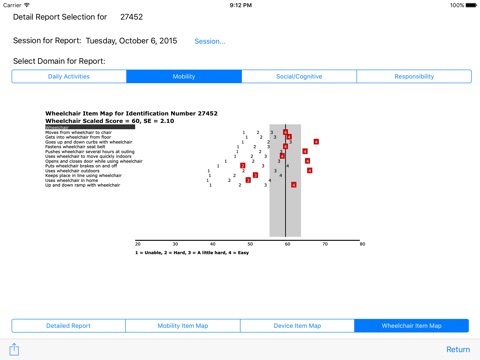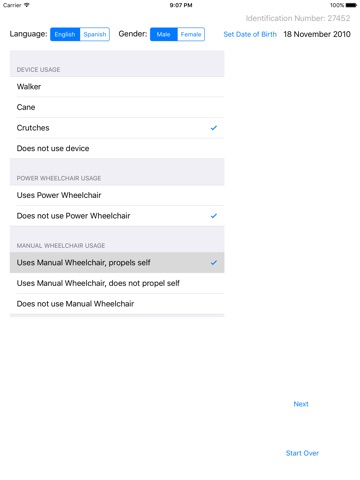
The Pediatric Evaluation of Disability Inventory (PEDI), originally published in 1992, has been revised as a computer adaptive test (CAT)-the PEDI-CAT. The PEDI-CAT measures abilities in the three functional domains of Daily Activities, Mobility and Social/Cognitive. The PEDI-CAT’s Responsibility domain measures the extent to which the caregiver or child takes responsibility for managing complex, multi-step life tasks. The PEDI-CAT can be used across all clinical diagnoses and community settings. As with the original paper-pencil PEDI, the PEDI-CAT can be administered by professional judgment of clinicians or educators who are familiar with the child or by parent report.
This computerized adaptive version of the PEDI is intended to provide an accurate and precise assessment while increasing efficiency and reducing respondent burden. The PEDI-CAT software utilizes Item Response Theory (IRT) statistical models to estimate a child’s abilities from a minimal number of the most relevant items or from a set number of items within each domain. All respondents begin with the same item in each domain in the middle of the range of difficulty or responsibility and the response to that item then dictates which item will appear next (a harder or easier item), thus tailoring the items to the child and avoiding irrelevant items. The CAT program then displays the results instantly.



